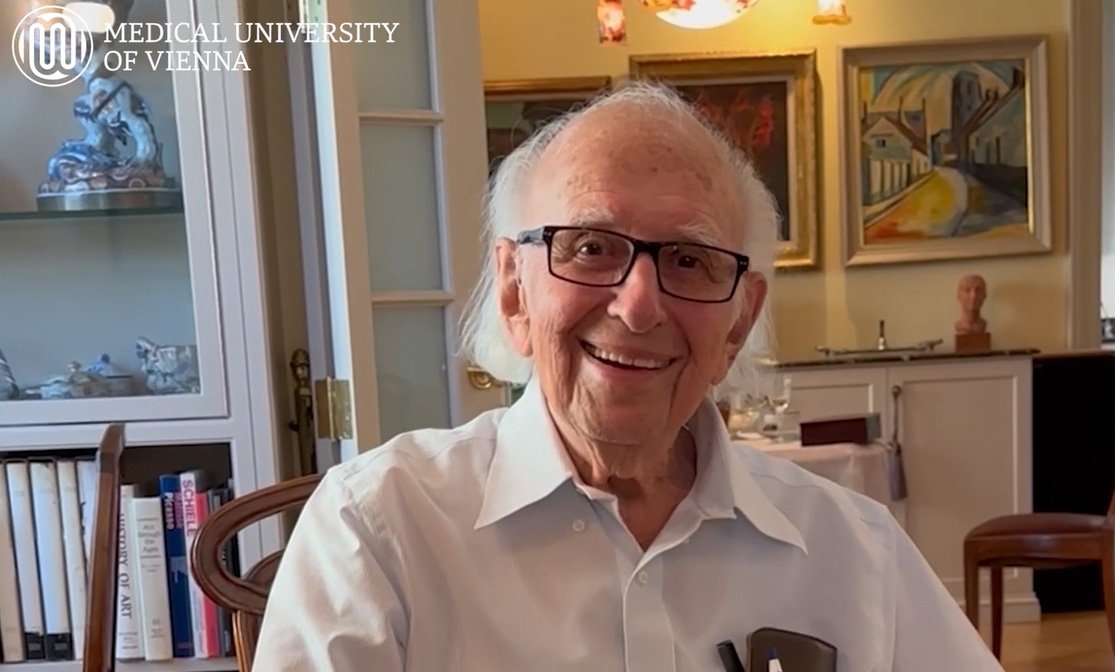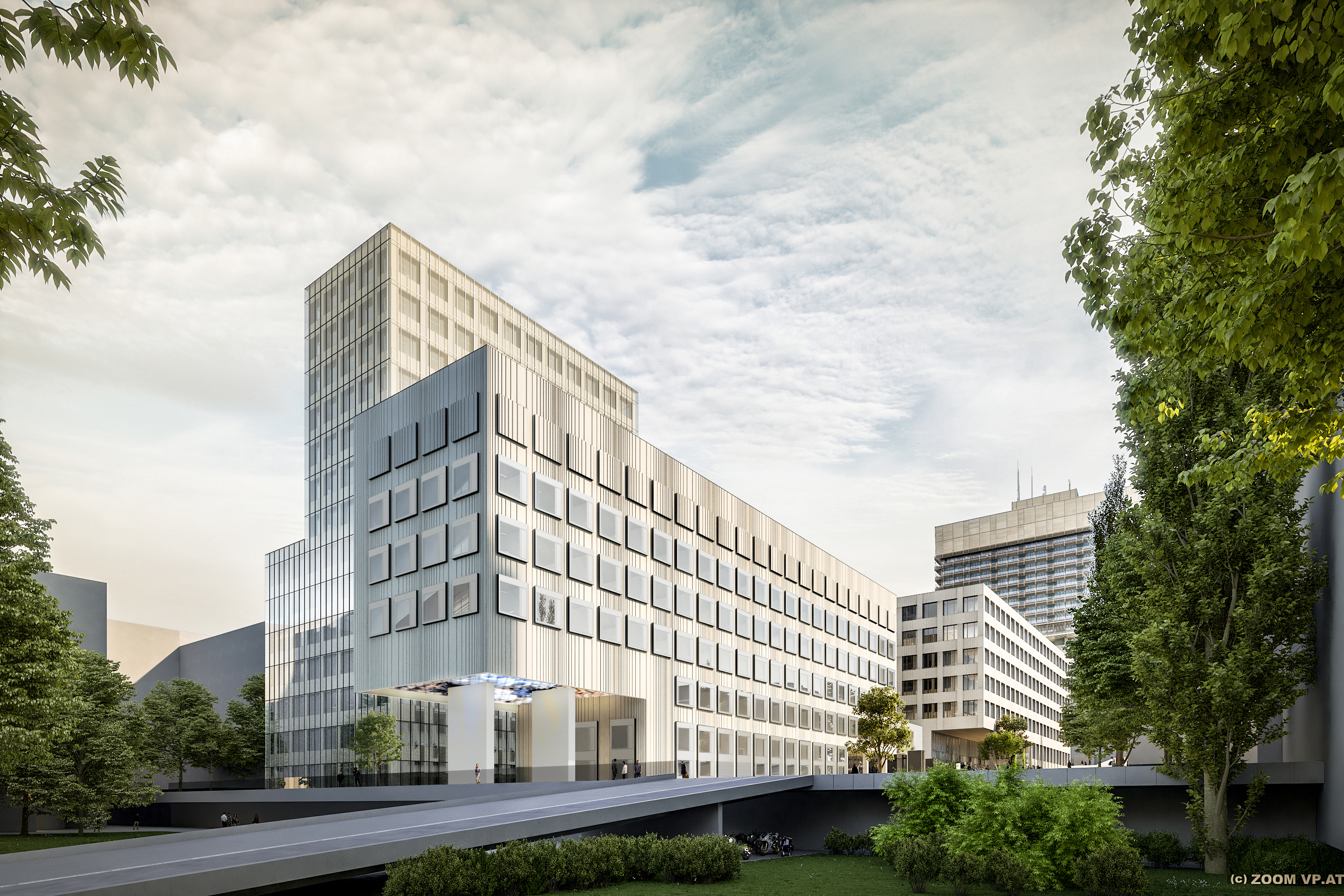Greetings from Eric Kandel

After activation, data will be sent to YouTube. Further information here: Data protection
Eric Kandel Institute - Center for Precision Medicine
Medical University of ViennaAddress:
MedUni Campus AKH, Lazarettgasse, south of the main building
Funding:
From funds from the European Recovery and Resilience Facility and donations
Planning start:
2022
Costs:
Around 90 million euros
Partner/Promoter:
Federal Government and City of Vienna/WiGev as owner of the property
Start of construction:
2023
Completion:
2027
Usable floor space:
6.100 m²
Modern conditions for researching the possibilities of personalised and digital medicine are being created on around 6,000 m² at MedUni Vienna General Hospital Campus. Around 200 researchers at the Eric Kandel Institute - Center for Precision Medicine will have the ideal infrastructure to develop prevention, diagnosis and treatment methods that are tailored to individual patients.
The institute is to be seen as a significant contribution to securing Vienna's pioneering role as a center of science. The costs, totalling around 90 million euros, will be covered by EU funds and donations.
The new research building will provide space for various highly specialised units for research into the possibilities of personalised and digital medicine, the two most important trends in medical science in the 21st century. For example, around 500 m² will be dedicated to computer-aided biomedicine projects, technology platforms and a biobank.
With the help of the modern infrastructure, around 200 research positions will be available from the end of 2026 to advance the development of prevention, diagnosis and therapy methods that are adapted to the individual factors of individual patients. Advancing digitalisation in medicine makes it possible to determine the different conditions from body to body, e.g. through genome sequencing or molecular imaging.
The Eric Kandel Institute - Center for Precision Medicine aims to strengthen and expand MedUni Vienna's pioneering role in this field. Personalised measures can be used for numerous health problems, such as cardiovascular diseases, mental illnesses, cancer, metabolic, respiratory or infectious diseases.
About precision medicine
Rethinking medicine: precision medicine/personalised medicine is bringing about a paradigm shift in medicine. Every person has unique DNA and a unique, individualised gene sequence. On the one hand, we carry the information stored here with us from birth; on the other hand, our DNA is subject to individual changes over the course of our lives. These can be caused by exogenous factors or by lifestyle influences. This genetic disposition is the reason for a possible, gene-related risk of a certain disease. Medicine based on the "one-size-fits-all" treatment method has often been associated with side effects or, in some cases, little success in curing the disease. The best form of therapy and prevention is therefore personalised medicine: precision medicine.
Eric Kandel gives his name to the project
With the findings from his scientific work, Eric Kandel (born 1929 in Vienna) created deep insights into the performance of human memory and a molecular understanding of mental processes and psychiatric illnesses. In 2000, he was awarded the Nobel Prize in Physiology or Medicine for his discovery of chemical and structural changes in the brains of all learning organisms, from snails to humans.
Kandel was forced to emigrate to the USA with his family in 1939 after the "Anschluss" of Austria to National Socialist Germany and was granted American citizenship in 1945. In 2009, Kandel was made an honorary citizen of the City of Vienna. In 2012, he received the Grand Decoration of Honour in Silver with the Star for services to the Republic, and in 2018 he was awarded an honorary doctorate from the Medical University of Vienna.

